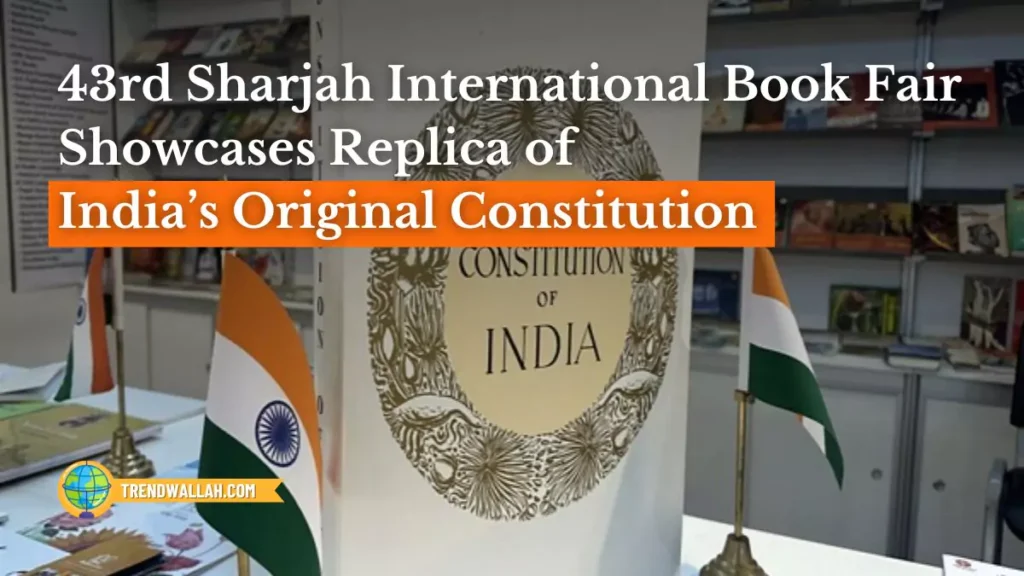
Omar Abdullah Sworn in as First Chief Minister of Jammu and Kashmir Union Territory– Omar Abdullah, leader of the National Conference (NC), was sworn in as the first Chief Minister of Jammu and Kashmir’s Union Territory (UT) of on 16 October 2024. Lieutenant Governor Manoj Sinha administered the oath at a ceremony held at the Sheri-Kashmir International Convention Centre in Srinagar. Alongside Abdullah, five ministers were also sworn in, including Surinder Kumar Choudhary as the Deputy Chief Minister.
Omar Abdullah’s 2nd Term as Chief Minister
This is Omar Abdullah’s second time serving as Chief Minister. His first term was between 2009 and 2014. However, this time marks a historic milestone as he becomes the first person to hold the position since Jammu and Kashmir was reorganized into a Union Territory in 2019 under the Jammu and Kashmir Reorganisation Act.
Strength of the Council of Ministers
As per the Jammu and Kashmir Reorganisation Act 2019, the Council of Ministers cannot exceed 10% of the legislative assembly’s strength. The legislative assembly of Jammu and Kashmir currently consists of 92 members, and therefore, the Council of Ministers is capped at nine members, including the Chief Minister.
No Congress Members in the Council
While the National Conference allied with the Congress for the elections, Congress chose not to participate in the government. Congress leader Rahul Gandhi, Congress president Mallikarjun Kharge, and Priyanka Gandhi Vadra attended the oath-taking ceremony, showing external support for the government.
The Political Legacy of Omar Abdullah
Omar Abdullah comes from a family with deep political roots in Jammu and Kashmir. His grandfather, Sheikh Mohammad Abdullah, was the first Prime Minister of Jammu and Kashmir, and his father, Farooq Abdullah, served three terms as Chief Minister. Omar Abdullah’s return to power is seen as a continuation of the family’s legacy in the region.
Key Details about the New Government in Jammu and Kashmir
| Position | Details |
| Chief Minister | Omar Abdullah (National Conference) |
| Deputy Chief Minister | Surinder Kumar Choudhary |
| Number of Ministers | 5 (4 NC members, 1 Independent) |
| Lieutenant Governor | Manoj Sinha |
| Total Legislative Seats | 92 (90 elected, 2 nominated for women) |
| Maximum Council Strength | 9 (including Chief Minister) |
First Chief Minister of Jammu and Kashmir News Summary:
- Omar Abdullah sworn in as the first Chief Minister of Jammu and Kashmir Union Territory.
- Lieutenant Governor Manoj Sinha administered the oath.
- Omar Abdullah’s second term as Chief Minister, first in the newly-formed Union Territory.
- The maximum strength of the Council of Ministers is capped at 9, per the Reorganisation Act.
- Congress, despite winning 6 seats, chose not to join the government.
- Omar Abdullah’s family has a long political history in Jammu and Kashmir.
Also Read Latest Current Affairs 2024
Omar Abdullah has been sworn in as the first Chief Minister of Jammu and Kashmir Union Territory.
The Lieutenant Governor of Jammu and Kashmir, Manoj Sinha, administers oaths and oversees the functioning of the UT as the representative of the central government.
The Council of Ministers in Jammu and Kashmir includes five ministers, with Surinder Kumar Choudhary as the Deputy Chief Minister.
Although Congress allied with the National Conference during the elections, it chose not to participate in the government but has offered external support.
The Jammu and Kashmir Reorganisation Act 2019 split Jammu and Kashmir into two Union Territories—Jammu & Kashmir and Ladakh—changing its governance structure.
The Jammu and Kashmir legislative assembly has 92 members, with 90 elected members and 2 nominated women members.

